Traveling to the United States can be a truly enjoyable experience. However, when you look at the list of dangerous insects, snakes and other animals that you may encounter, a little fear sets in. If you have good travel and life insurance, you could still travel to the United States, but be well informed before you set foot there.
18. Arizona Bark Scorpions
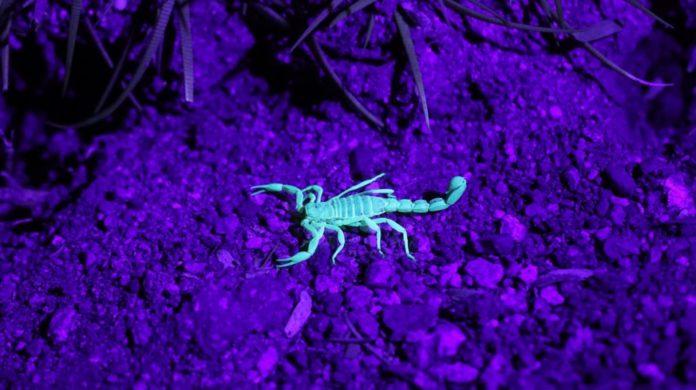
As the name implies, Arizona bark scorpions inhabit the southwestern section of the USA. It is the only type of scorpion in the country that has lethal venom, although it only tends to kill elderly people or very small children.
People stung by an Arizona bark scorpion exhibit symptoms including convulsions, numbness and frothing at the mouth.
17. Ticks
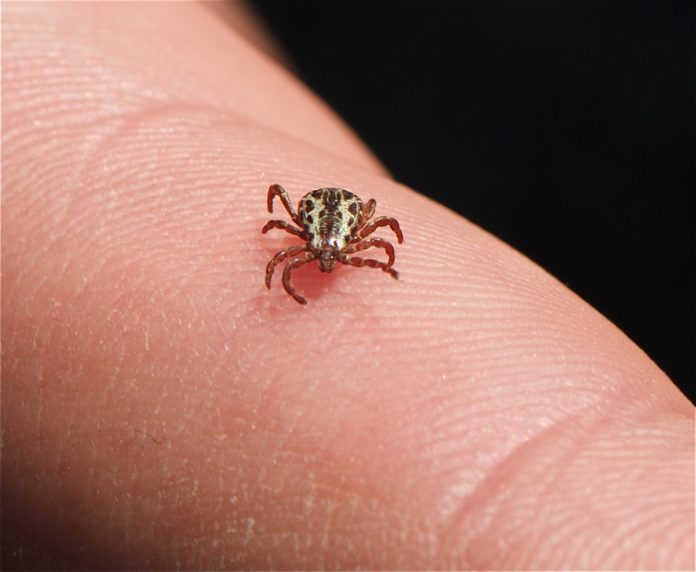
If you’re thinking about dangerous insects you find in the summer, you’ll probably think of ticks. However, if you want to be technical, they are not insects but arachnids. Anyone who shares their habitat with herds of deer will be aware of Lyme disease, but ticks carry more infections than that.
The CDC has reported that the number of illnesses that ticks carry has increased by hundred percent over the last 13 years; these diseases include babesiosis (a disease of red blood cells), Rocky Mountain spotted fever, and the bacterial infection anaplasmosis.
16. Red Harvester Ants
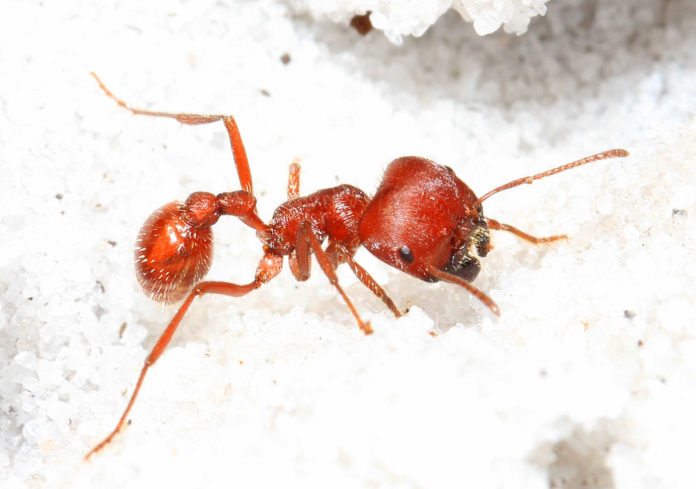
Don’t be misled into thinking that the tiny ant is harmless. Red harvester ants (a.k.a. worker ants), found in the west of the USA, chiefly in Texas, are a foraging ant with a serious bite.
They won’t attack unless you provoke them, but when they do you’ll know about it!
15. Kissing Bugs
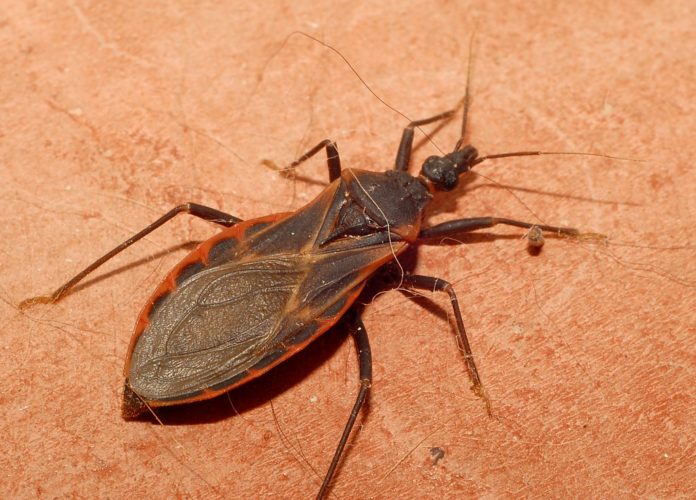
The kissing bug, a.k.a. the triatomine bug (its scientific name) is found in the southern part of the USA. It has recently been realized that it has links with the serious Chagas disease.
These bugs generally come out at night and suck blood from their victims, which can transmit T.cruzi, a parasite responsible for Chagas disease. The symptoms can be anything from constipation to strokes to sudden heart attacks, although 95% of victims survive.
14. Brown Recluse Spiders
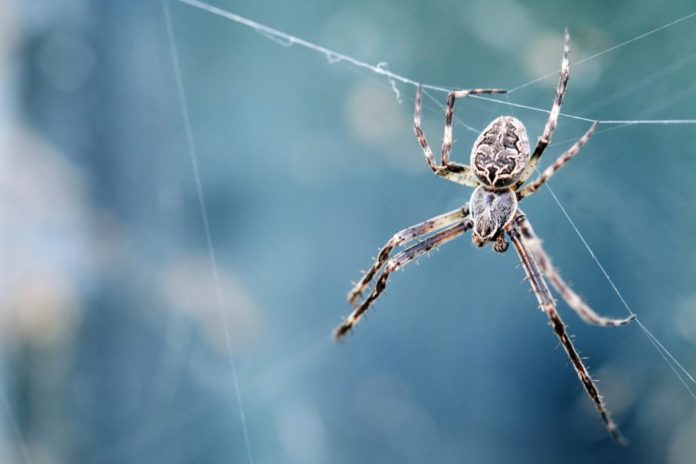
As its name suggests, Brown recluse spiders, which are nocturnal, tend to hide around dark parts of houses, such as in closets and under furniture. Brown recluse spiders are found across the middle of the USA and also in the South.
The bite of this spider is extremely potent and anyone who suffers it should seek treatment at once. It can take many days for the wounds it causes to heal, and fatal infections are a possibility.
13. Chiggers
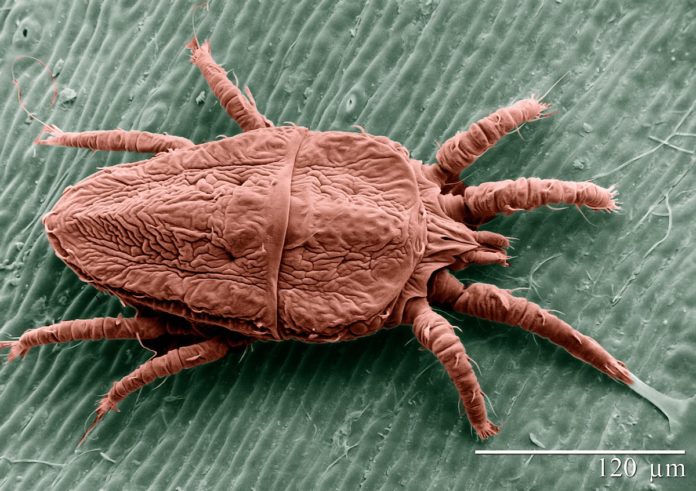
The larvae of the trombiculid mite, chiggers can’t be seen by humans unless they group together.
They eat human skin cells, and their saliva causes irritation and itching.
12. Buck Moth Caterpillar
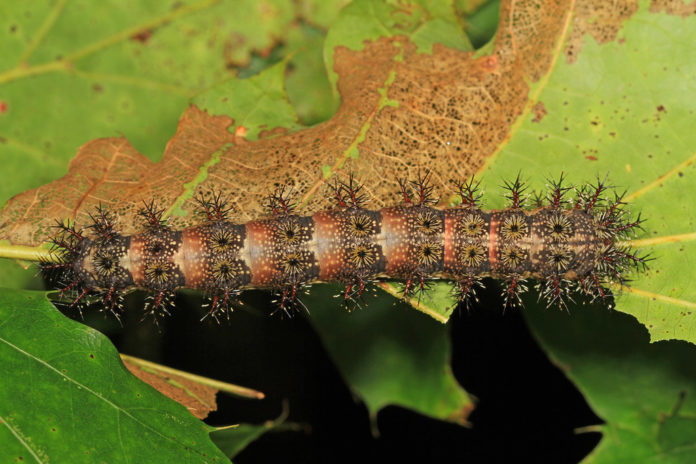
Buck moth caterpillars, found spread across the East Coast, have a coating of poisonous bristles. They have an extremely painful sting which can, rarely, provoke anaphylaxis, which can kill without medical attention.
These caterpillars conglomerate in large feeding groups, which can present a significant hazard to any unwary human who blunders into them.
11. Black Widow Spiders
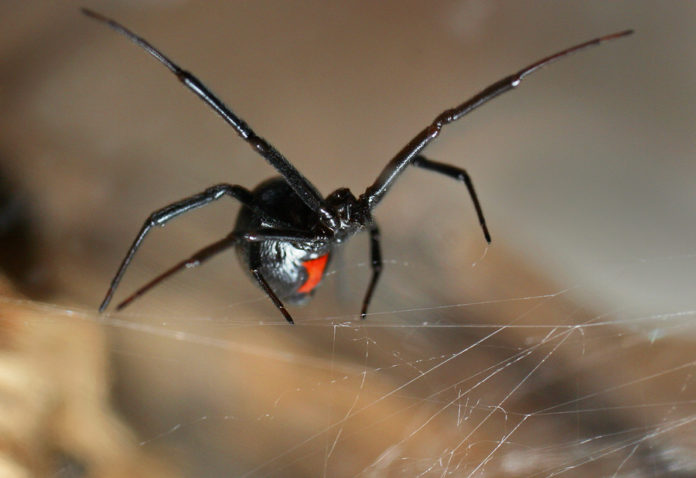
Black widow spiders are not much larger than the top joint of your finger, but they can certainly do a lot of damage for their size. The National Geographic states that its venom is fifteen times stronger than a rattlesnake’s, although it’s not as deadly as generally believed, with only a small number of people having ever been killed by a black widow.
However, its bite can provoke nausea, aching muscles, and breathing problems, which is bad enough!
10. Anopheles Mosquitoes
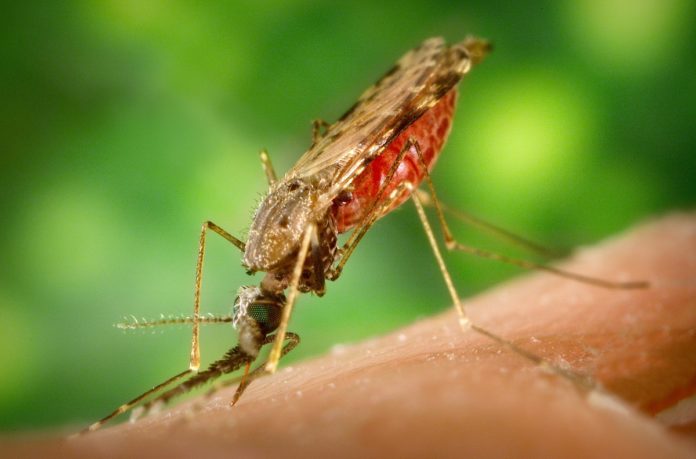
Mosquitoes inhabit nearly every part of the USA, but they’re not dangerous in themselves. The problem is the numerous diseases that mosquitoes can carry.
A female Anopheles mosquito can carry malaria; furthermore, the CDC tells us that many types of mosquito can resist insecticide, which makes it really difficult to combat the spreading of some of the world’s most deadly infectious diseases.
9. Maricopa Harvester Ant
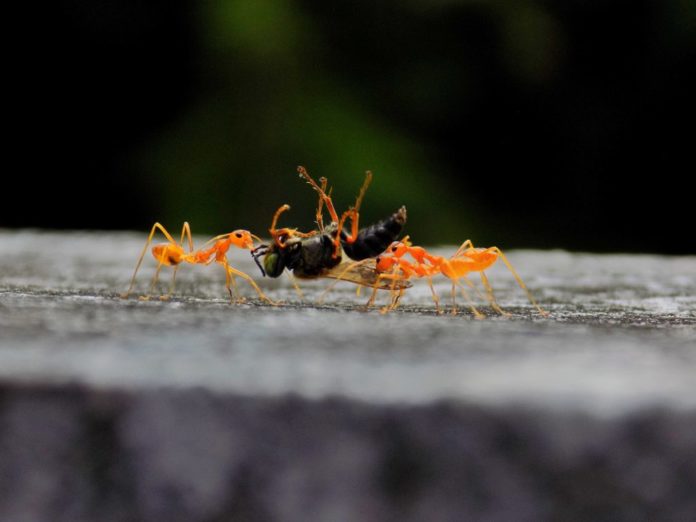
The Maricopa harvester ant is one of North America’s most poisonous insects. The most significant element of this ant’s venom is a poisonous alkaloid; when it’s released it emits a pheromone that warns every other ant nearby that an attack is underway.
This chemical signal is the reason why every ant will launch an attack at the same time. Along with this alkaloid, the venom may contain antigenic proteins that can trigger an immune response in some people that can be fatal.
8. Africanized Honey Bees
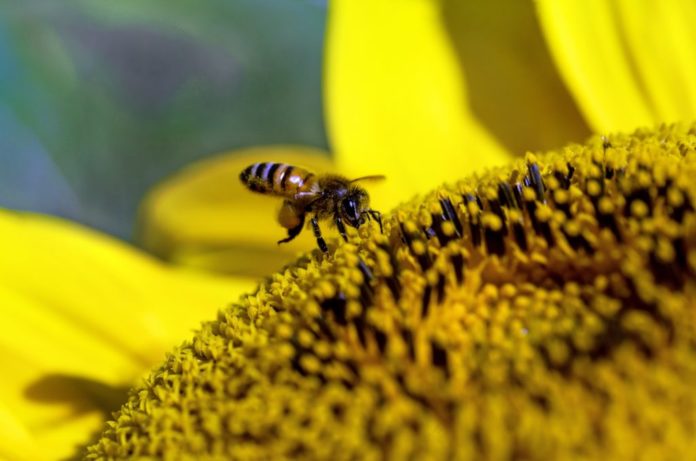
The Africanized honey bee, a.k.a. the killer bee, ended up in America as a result of mistakes during a scientific experiment. These killer insects had colonized southern Texas by 1990, and by 2014 they were found as far west as San Francisco. These bees are called killers for good reason: compared to European honeybees they are ten times swifter and way more aggressive.
Researchers have stated that they are quicker to defend their colonies, attacking in larger numbers with more stinging. Over the past half-century these bees have killed hundreds of people, so stay well clear of them.
7. Asian Giant Hornet
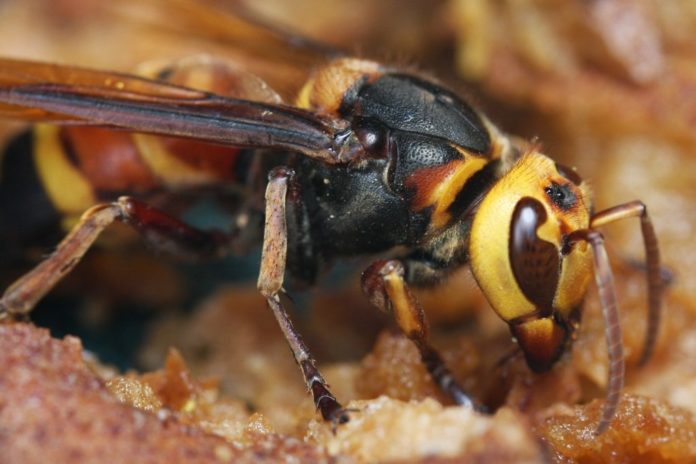
The name tells you where the Asian giant hornet originated, but it has migrated to North America, being seen in various locations around the state of Virginia. It’s the biggest hornet in the world, and also the most deadly.
Its sting measures a quarter of an inch, and just two or three stings from this creature are enough to kill an adult.
6. Puss Caterpillars
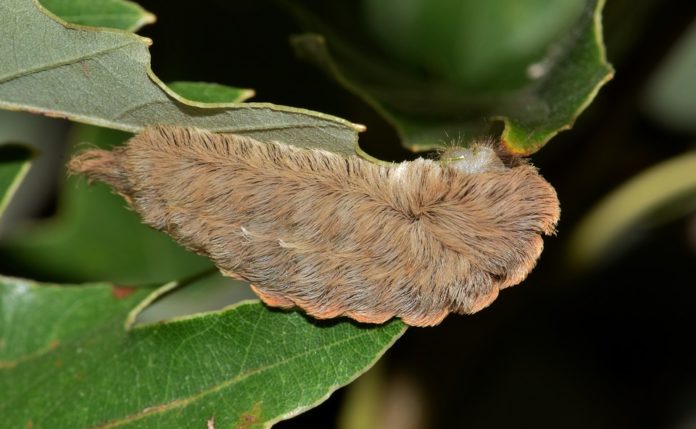
Puss caterpillars might look cuddly, but that disguises the fact that it’s the most venomous caterpillar in the whole of the USA. Its principal habitats are in the southeast of the country.
It has what look like hairs all over its body which are in fact defensive spines; if they pierce the skin they can trigger an enormously painful reaction for up to 12 hours. Nobody is known to have died of a puss caterpillar’s sting – yet. Make sure you’re not the first.
5. Centipedes
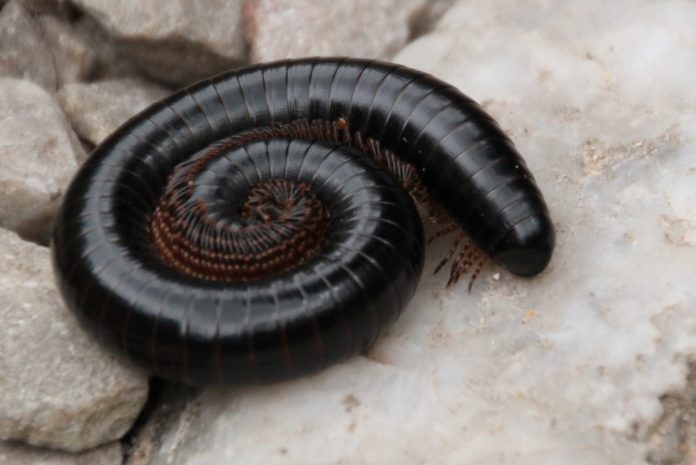
You won’t get bitten by a centipede, but if you annoy them they may pinch you.
Although venomous centipedes can’t do serious damage, if they do pinch you can suffer a reaction similar to a bee sting, with swelling, pain, and redness.
4. Oriental Rat Fleas
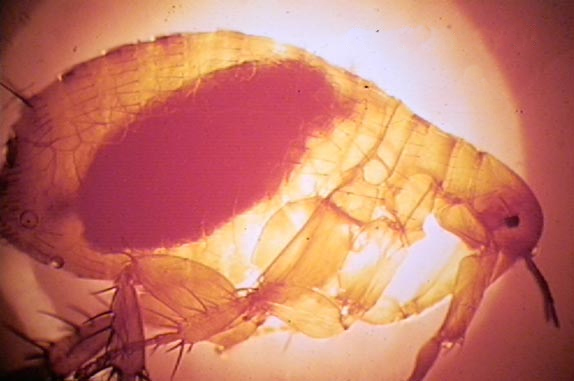
Many people think that the bubonic plague is carried by rats, but this isn’t, in fact, true: it’s the insects that the rat carries that cause it. Oriental rat fleas still carry the plague-causing bacteria, and it’s them that cause rat-to-rat infection and rat-to-human infection. Symptoms can range from the mild – headaches and cough – to seizures and internal bleeding.
Bubonic plague is, historically, one of the world’s deadliest diseases, although we do now have antibiotics that mean if you are unlucky enough to be one of the rare people who becomes infected you have a good chance of survival.
3. Paper Wasps
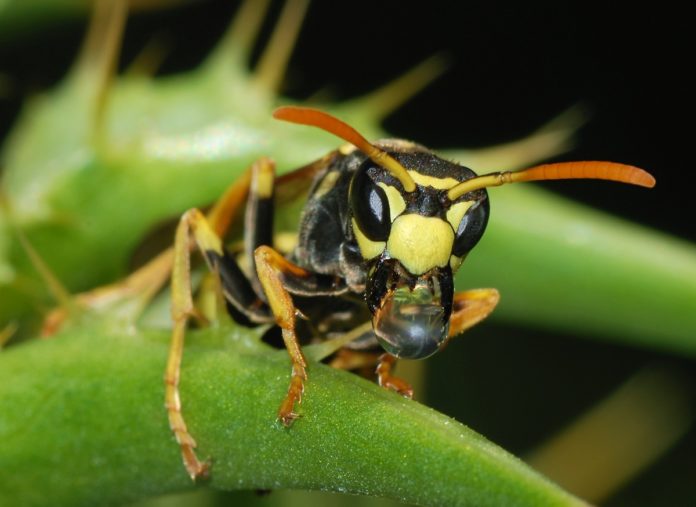
Paper wasps aren’t as ready to attack as Yellowjackets, but they will sting if you invade their territory, and it is painful.
Some people may suffer an allergic reaction to the sting, but apart from that and temporary pain it’s relatively harmless.
2. Horseflies
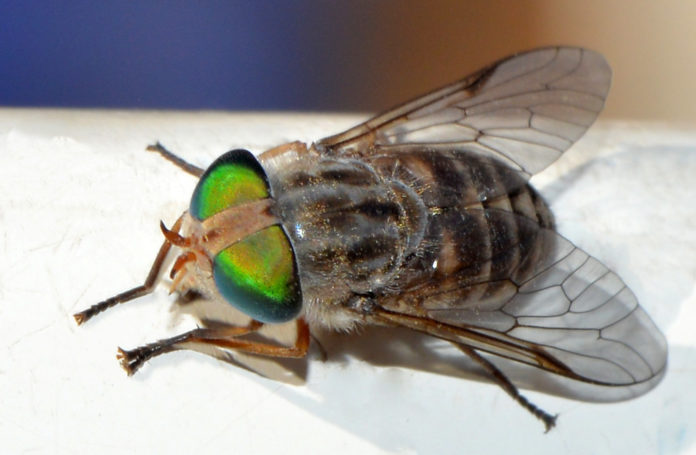
You can tell a horsefly by its black or gray body and substantial eyes which have horizontal green and purple stripes. Male horseflies don’t harm humans, but females can bite.
These bites are particularly painful because they can break the skin and tear it. Certain species also carry diseases.
1. Yellow Jacket
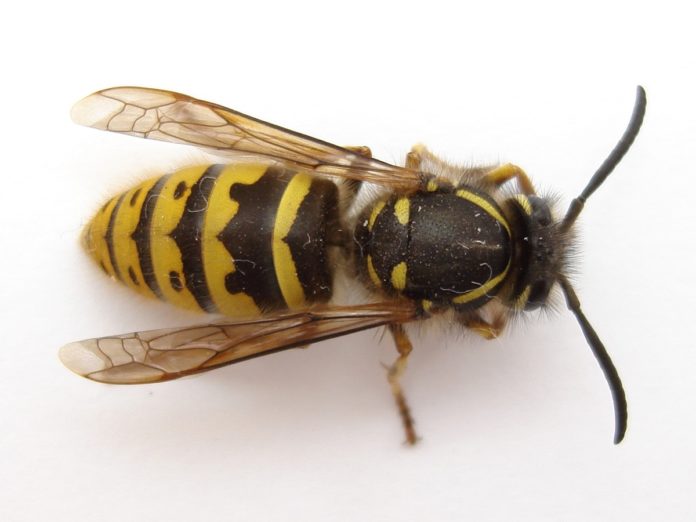
Don’t be misled by the fact that a yellow jacket looks likely relatively innocuous honeybee; they are an aggressive type of wasp that will react to threats with multiple stings.
More than half a million people end up in ER every year with allergic reactions to the yellowjacket sting. You might only see one, but steer clear – it almost certainly means there’s a colony of many thousands somewhere close by.


































